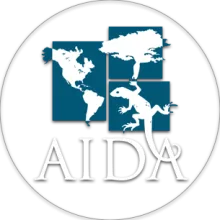ECO/Climate Action Network
We are very happy to be in Lima, and ECO is ready to get right to it. COP20 needs to deliver on enough confidence building measures to ensure climate action and a successful outcome from next year’s COP in Paris. The wheels have already started turning:
- The Peruvian COP presidency has shown commitment and substantial effort to guide the negotiations onto the right track.
- The US-China climate announcement, on the heels of similar action by the EU, has injected positive impetus into the political aspect of the negotiations – and is pressuring significant laggards and defaulters, who can no longer claim inaction by the G2 to wiggle out of doing their part.
- The IPCC is shining clear light on the latest science, pointing urgently to deeper climate action as well as the fast-rising costs of delay.
- The GCF is seeing some light at the dim end of the climate finance tunnel with pledges at $9.7 billion for initial capitalization – though that’s welcome, it must not distract from the pressing need to scale up finance within the new agreement.
Are these announcements and developments enough to create the right confidence building measures across countries, cement the foundation for greater political will and achieve success in Paris? ECO surely hopes so – but let’s be clear, this opening round of mitigation announcements must not be a resting place but rather a starting point that Parties will broaden and expand.
The agreement in Paris is going to rest on three key decisions here in Lima: the elements of the 2015 agreement, the iNDC upfront information requirements, and ways to ramp up pre-2020 ambition. These outcomes are going to define the contours of the new global agreement.
So let’s look a bit closer. The elements text must include a long-term goal of phasing out all fossil fuel emissions and phasing in 100% renewable energy as early as possible, but not later than 2050.
We also expect to see goals for public finance along with a robust and honest MRV regime for them; a global adaptation goal that enables adaptation to be mainstreamed; and a strengthened two-year work plan to immediately operationalize the Warsaw loss and damage mechanism and to ensure that loss and damage has its appropriate place within the 2015 agreement.
Not so easy, right? Well, don’t worry, as always, ECO is here to help. And with that in mind, we also look forward to seeing the inclusion of an enhanced role for civil society in the text.
To be clear, we have high hopes for the iNDC text. The iNDCs should include mitigation with regular 5-year cycles of contributions, starting with countries putting forward their contributions for the 2020-2025 cycle, provision and mobilization of finance as part of countries’ fair share of the global effort, and voluntary adaptation contributions.
Not only that, all current and future contributions must undergo a sound, robust equity and adequacy assessment phase to help drive up ambition and ensure that low ambition is not locked in by any country.
The first round of iNDCs will set the tone for the future. We’ve really got to get it right on this one – it is no exaggeration to say the future of human civilization is weighing on all our shoulders.
And every step counts. The effectiveness of the post-2020 agreement to be reached in Paris next year depends on the progress we make between now and 2020.
On pre-2020 finance it’s simple: developed countries have to present a credible roadmap on how they are going to meet their $100 billion promise, deliver additional pledges to the GCF (this means you, Australia, Austria, Belgium, Iceland and Ireland) and also not let the Adaptation Fund dry up.
We need finance and a full set of means of implementation and support to unlock untapped potential in countries and sectors that can deliver greater ambition for reducing emissions, as well as assisting vulnerable communities that are already facing impacts from climate change.
On mitigation, what has the latest IPCC report taught us? All countries need to increase their pre-2020 mitigation commitments, and deliver on them through real mitigation actions. As session after session has shown, climate impacts do not stick to UNFCCC timelines; the atmosphere sees what we do, not what we think.
The pressure is on but ECO is confident we can respond. We’ve got a lot of work to do, and there is no time to lose.
Archivado en: English ![]()
AIDA Staff

Founded in 1998, AIDA is a nonprofit environmental law organization that works across international borders to defend threatened ecosystems and the human communities that depend on them.
